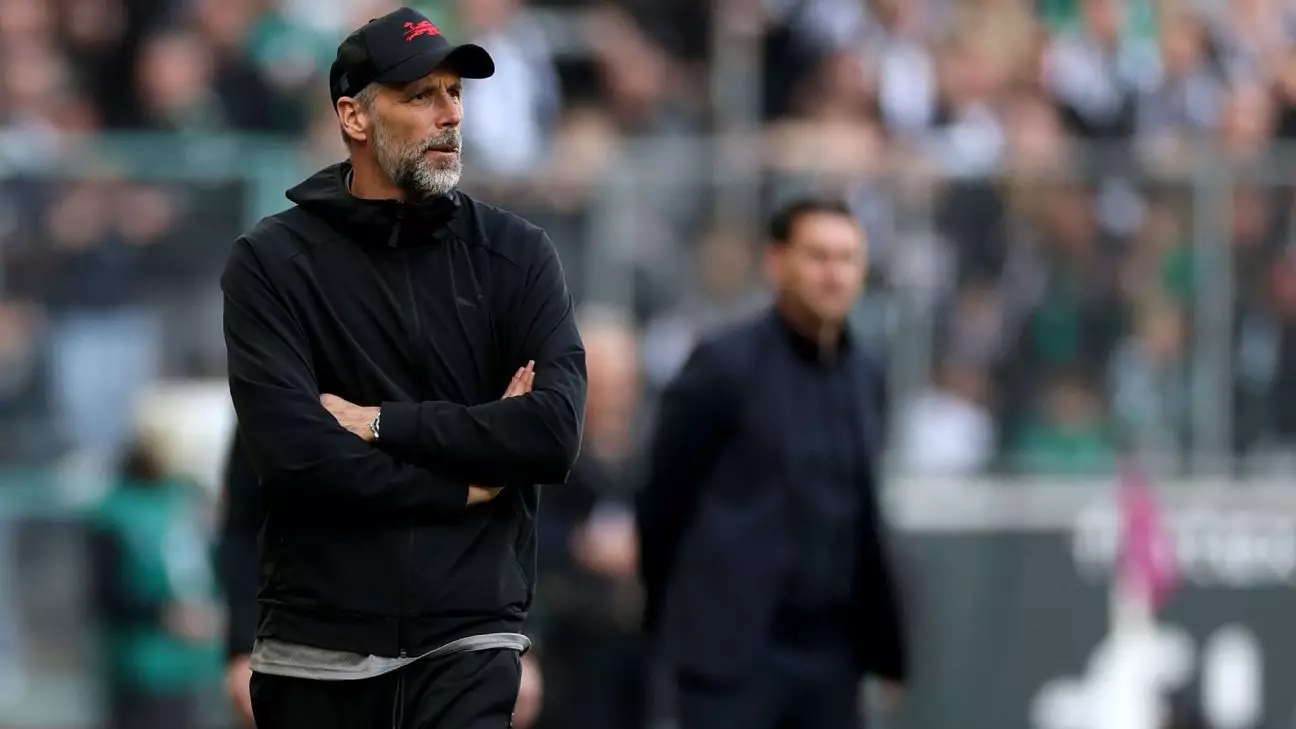The recent decision by RB Leipzig to part ways with coach Marco Rose reflects the growing pressures in modern football where expectations are as high as ever. With a thorough assessment of their current standings, the club opted to address the discontent stemming from a less-than-stellar Bundesliga campaign this season. Under Rose’s stewardship, Leipzig had appeared to be on a promising trajectory. They had clinched the German Cup title in the previous season and even captured the German Super Cup. Yet, what became evident is that the euphoria of past successes was overshadowed by current disappointments, including a faltering league position, now languishing in sixth place after a disheartening defeat to Borussia Monchengladbach.
The New Era with Zsolt Low
Taking on the coaching mantle is Zsolt Low, a name that resonates with potential familiarity. As a former player and assistant coach, Low carries a wealth of experience cultivated from various high-caliber roles. His association with illustrious managers like Thomas Tuchel showcases a promising pedigree that could activate Leipzig’s dormant potential. Low’s interim appointment reflects the club’s intent to instill a fresh perspective, aiming to harness both his tactical acumen and deep-rooted understanding of the team’s dynamics to re-engage their ambitious aspirations. With a German Cup semi-final against VfB Stuttgart looming, anticipation builds around his capacity to galvanize the team at such a pivotal moment.
Expectations and Challenges Ahead
As RB Leipzig steers its ship through tumultuous waters, the challenges ahead for Low are indeed formidable. Balancing the aspirations of a club that had initially set its sights on title contention against the backdrop of player morale and tactical adjustments will be a defining factor. The looming doubt among fans mirrors the increasingly competitive landscape of the Bundesliga, where teams such as Bayern Munich and Borussia Dortmund continue to raise the bar. Low’s task will necessitate a quick turnaround in performance, particularly in the Bundesliga’s remaining matches, as well as the pursuit of the DFB Pokal title.
Lessons from the Past
The departure of Rose serves as a stark reminder of the impermanence in football management. Even a successful tenure can quickly unravel, particularly when inconsistency creeps in. Leipzig’s management must reflect on the insights gained during Rose’s leadership—what worked seamlessly and what failed to resonate with the squad. As they usher in a new chapter, a delicate balance of ambition, realistic expectation, and swift adaptability will be paramount. A deep introspection into their approach could forge a stronger foundation for future endeavors.
By entrusting Zsolt Low with the responsibility, Leipzig appears ready to take the lessons learned from their previous experience and mold them into a strategy that revitalizes the team. As pressures mount, the spotlight will undoubtedly shine on how effectively they navigate this transitional period, laying the groundwork for stability and success in the seasons ahead.

Leave a Reply